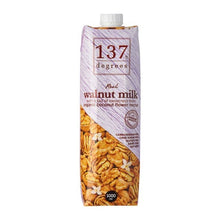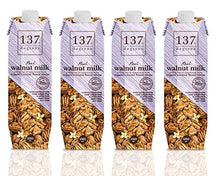They originated in the Mediterranean region and Central Asia and have been part of the human diet for thousands of years.
These nuts are rich in omega-3 fats and contain higher amounts of antioxidants than most other foods. Eating walnuts may improve brain health and prevent heart disease and cancer.
Walnuts are most often eaten on their own as a snack but can also be added to salads, pastas, breakfast cereals, soups, and baked goods.
They are also used to make walnut oil an expensive culinary oil frequently used in salad dressings.
There are a few edible walnut species. This article is about the common walnut sometimes referred to as the English or Persian walnut which is grown worldwide.
Another related species of commercial interest is the eastern black walnut (Juglans nigra), which is native to North America.
Walnuts are made up of 65% fat and about 15% of protein. They're low in carbs most of which consist of fiber.
A 1-ounce (30-gram) serving of walnuts about 14 halves — provides the following nutrients
- Calories: 185
- Water: 4%
- Protein: 4.3 grams
- Carbs: 3.9 grams
- Sugar: 0.7 grams
- Fiber: 1.9 grams
- Fat: 18.5 grams
Fats
Walnuts contain about 65% fat by weight.
Like other nuts, most of the calories in walnuts come from fat. This makes them an energy-dense, high-calorie food.
However, even though walnuts are rich in fat and calories, studies indicate that they don't increase obesity risk when replacing other foods in your diet.
Walnuts are also richer than most other nuts in polyunsaturated fats. The most abundant one is an omega-6 fatty acid called linoleic acid.
They also contain a relatively high percentage of the healthy omega-3 fat alpha-linolenic acid (ALA). This makes up around 14% of the total fat content.
In fact, walnuts are the only nuts that contain significant amounts of ALA.
ALA is considered especially beneficial for heart health. It also helps reduce inflammation and improve the composition of blood fats.
What's more, ALA is a precursor for the long-chain omega-3 fatty acids EPA and DHA, which have been linked to numerous health benefits.
Walnuts are an excellent source of several vitamins and minerals, including:
- Copper. This mineral promotes heart health. It also helps maintain bone, nerve, and immune system function.
- Folic acid. Also known as folate or vitamin B9, folic acid has many important biological functions. Folic acid deficiency during pregnancy may cause birth defects.
- Phosphorus. About 1% of your body is made up of phosphorus, a mineral that is mainly present in bones. It has numerous functions.
- Vitamin B6. This vitamin may strengthen your immune system and support nerve health. Vitamin B6 deficiency may cause anemia.
- Manganese. This trace mineral is found in the highest amounts in nuts, whole grains, fruits, and vegetables.
- Vitamin E. Compared to other nuts, walnuts contain high levels of a special form of vitamin E called gamma-tocopherol.



